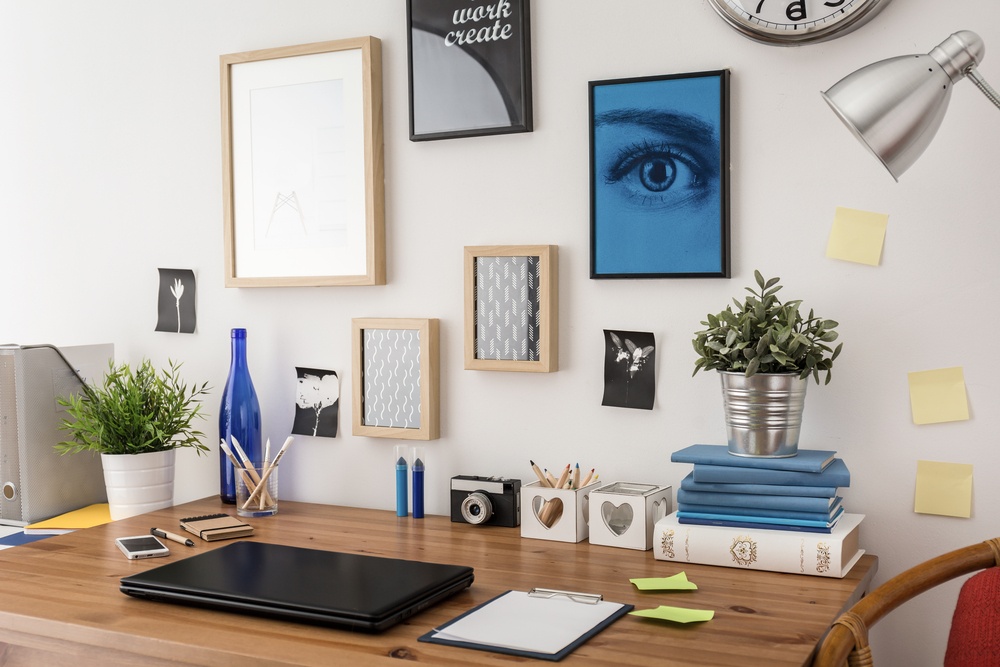Yes, Staying Organised Is Possible!
 Contributed by
Nathalie Ricaud
August 17, 2016
Contributed by
Nathalie Ricaud
August 17, 2016

Do you put a lot of effort into organising your space, only to find clutter creeping back obnoxiously?
Or maybe you don’t even want to get started because you question your ability to maintain an organised space. I have answers to both situations here for you.
I know a lot of people who procrastinate because they think they won’t be able to maintain their organized space in the long run. But organising is sustainable, provided that it is based on a system that is built around your needs and preferences, and those of your family. And that’s where a lot of people get it wrong. They think that organising is tidying and just end up moving things around in their homes. Or they rely on organising products to solve their organising challenges. These for sure won’t work and will certainly result in clutter coming back.
But if you’ve already organised your space and are after a few tips to keep it that way, read on!
Tip #1: Return Things Where They Belong After Use
This is easy if every item you own has a dedicated home. Then it’s just a question of practicing this habit consistently for three weeks so that it becomes second nature. If you stay in a multi-storey apartment or house, I suggest you place a basket at the bottom and at the top of the stairs for things that belong to the other floor so that you don’t end up going up and down all the time to put things away.
Tip #2: Involve The Rest Of Your Household
It’s not always easy to get the rest of your family members to help you maintain the space organised, even more so if they haven’t been involved in the organisation process. If that’s so, take the time to teach them the systems you’ve put in place. Tell them that if they aren’t sure where to put things away, they should ask you instead of putting them in a random place.
Even children as young as three years old can put their toys back by themselves. After all, that’s what is asked of them at school. And they do it, maybe because they don’t dare to challenge their teachers but also because there are systems in place, systems they’ve been taught and that are simple enough for them to understand.
Tip #3: Do A Daily Tidy-Up At The End Of The Day
It’s always good to end the day by making sure that everything has been returned where it belongs so that you can start the next day in a clean state. It’ll lift your spirits in the morning, which will be an extra motivation to keep it that way. It shouldn’t take you more than 10 minutes, but if it does, it means your system needs re-evaluation.
Tip #4: Purge Regularly And More Often
Things tend to accumulate very quickly, don’t they? So have a schedule to go through your belongings and purge at least once a year. For clothes and medicine, maybe twice a year. For toys, before or after Christmas, or before or after a birthday. For schoolwork, at the end of the school year, etc.
Even better, don’t put back in your cabinets something you know you don’t need, that you won’t be using again or that you don’t love anymore; for example, that dress that doesn’t make you feel good or that toy that is broken or that your child has outgrown. Throw right away what is not in a good condition and can’t be fixed and have a box or bag in a closet for things you can give away or sell. When the box or bag is full, take action.
Tip #5: Buy Only What You Need
Have a list of things you need to buy and, as much as you can, stick to your list. If you are tempted to buy something that wasn’t on your list, ask yourself whether you really need it. If you can, walk away and give yourself some time to think about it. Don’t buy in sales unless it is on your shopping list. Resist the urge to buy when you can rent or borrow. Buy gifts only one or two weeks before you are planning to give them so that you remember you have them and where they are. Cancel subscriptions for newspapers or magazines that you never read.
Tip #6: Practice The “One In/One Out” Rule
Buying new jeans? Chuck or donate an old pair. Filing a phone bill? Take the oldest out and throw it away. This means you keep the same amount at all times.
Tip #7: Rationalise
Be mindful of items that serve only one purpose; this is very true of the kitchen where I typically find a lot of gadgets. There’s quite a lot you can do with a chopping board and knife, really. I know we like to please our guests but do we really need to have ten varieties of cereals or teas in case one of your guests asks for it?
Tip #8: Avoid Freebies
That includes buy-one-get-one-free products, unless you’re a regular user of the item and that you can use it by its expiry date. But also, free gifts that come with a subscription or membership, party favours, giveaways with company logos such as T-shirts, caps, and backpacks – unless again you know what you’re going to do with them.
Of course, there’ll always be times when the systems you’ve implemented will need to be revisited, in particular, a big life-changing event such as parenthood, relocating, getting a new job, or working from home. But I’m quite confident that if you follow the tips above, that’ll be more an exception than a standard practice. Good luck!









Sorry, the comment form is closed at this time.